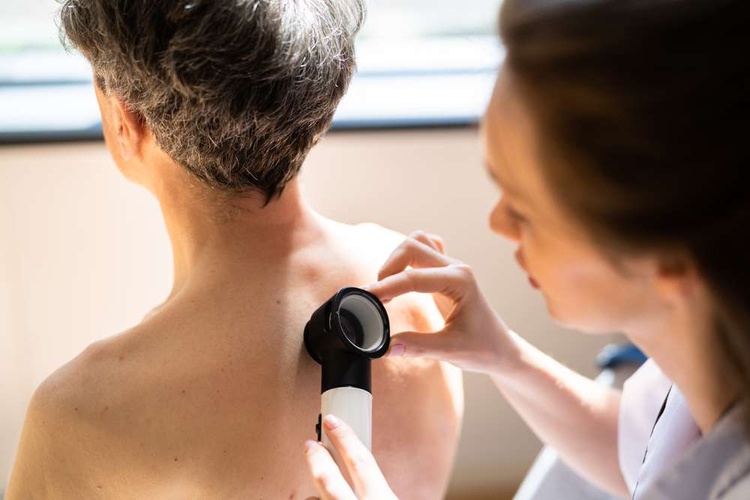The Importance of Regular Dermatologist Visits for Optimal Skin Health
Maintaining healthy skin goes beyond daily cleansing and moisturizing routines. Regular visits to a dermatologist play a crucial role in preserving your skin's health and detecting potential issues early. This article explores the benefits of scheduling regular dermatologist appointments and what you can expect during these essential check-ups.

What are the benefits of scheduling regular dermatologist appointments?
Regular dermatologist visits offer numerous advantages for your skin health. These appointments allow for early detection of skin conditions, including potential skin cancers. Dermatologists can identify subtle changes in your skin that may not be noticeable to the untrained eye. They can also provide personalized advice on skincare routines, product recommendations, and lifestyle changes to improve your skin’s overall health. Additionally, regular check-ups enable your dermatologist to monitor existing skin conditions and adjust treatments as needed, ensuring optimal management of chronic skin issues.
What can I expect during a dermatologist examination?
A typical dermatologist examination involves a thorough inspection of your skin from head to toe. The dermatologist will carefully examine your skin, hair, and nails for any abnormalities or signs of concern. They may use specialized tools like a dermatoscope to get a closer look at specific areas. During the examination, the dermatologist will ask about your medical history, any skin concerns you may have, and your current skincare routine. They might also take photographs of certain areas for documentation and future comparison. If necessary, they may perform biopsies or other diagnostic procedures to investigate suspicious lesions or skin conditions further.
Which common skin conditions do dermatologists evaluate?
Dermatologists are trained to diagnose and treat a wide range of skin conditions. Some of the most common issues they evaluate include:
-
Acne and other inflammatory skin conditions
-
Eczema and dermatitis
-
Psoriasis
-
Skin infections (bacterial, fungal, or viral)
-
Rosacea
-
Skin allergies and sensitivities
-
Moles and other skin growths
-
Hair loss and scalp conditions
-
Nail disorders
-
Skin cancer (melanoma, basal cell carcinoma, squamous cell carcinoma)
How should I prepare for my first dermatologist visit?
Preparing for your first dermatologist appointment can help ensure a productive and informative visit. Here are some tips to help you get ready:
-
Make a list of your skin concerns and any questions you have.
-
Gather information about your family history of skin conditions and skin cancer.
-
Bring a list of all medications and skincare products you currently use.
-
Avoid wearing makeup or nail polish to allow for a thorough examination.
-
If you have any previous skin biopsy results or relevant medical records, bring them along.
-
Be prepared to discuss your sun exposure habits and use of sun protection.
-
Consider taking photos of any skin issues that come and go, as they may not be present during your visit.
Why is early detection crucial in skin cancer prevention?
Early detection is paramount in skin cancer prevention and treatment. When caught early, most skin cancers are highly treatable and have excellent prognoses. Regular dermatologist visits significantly increase the chances of detecting skin cancer in its earliest stages when it’s most manageable. Dermatologists are trained to identify subtle changes and suspicious lesions that may not be apparent to the average person. They can perform biopsies to confirm diagnoses and recommend appropriate treatment plans promptly. Moreover, early detection often leads to less invasive treatment options and better cosmetic outcomes. By prioritizing regular skin check-ups, you’re taking a proactive step in protecting your skin health and potentially saving your life.
What are some recommended skin care products and services?
While personalized recommendations are best obtained from your dermatologist, here’s a general overview of some widely recommended skin care products and services:
| Product/Service | Provider | Key Features/Benefits |
|---|---|---|
| Broad-spectrum sunscreen | EltaMD | SPF 46, zinc oxide-based, suitable for sensitive skin |
| Retinol serum | SkinCeuticals | 1% pure retinol, reduces fine lines and improves skin texture |
| Chemical peel | Professional dermatology clinics | Exfoliates skin, improves tone and texture |
| Hydrating moisturizer | CeraVe | Contains ceramides and hyaluronic acid, suitable for all skin types |
| Laser hair removal | Professional dermatology clinics | Long-term hair reduction, suitable for various skin types |
This article is for informational purposes only and should not be considered medical advice. Please consult a qualified healthcare professional for personalized guidance and treatment.
In conclusion, regular dermatologist visits are an essential component of maintaining optimal skin health. By scheduling routine check-ups, you’re investing in early detection, personalized skincare advice, and comprehensive management of skin conditions. Remember that your skin is your body’s largest organ and deserves professional attention to keep it healthy and vibrant for years to come.




